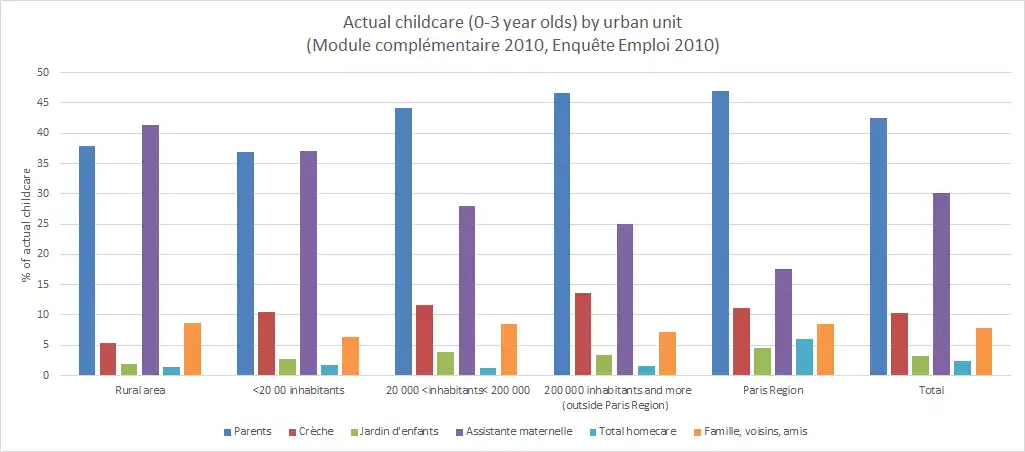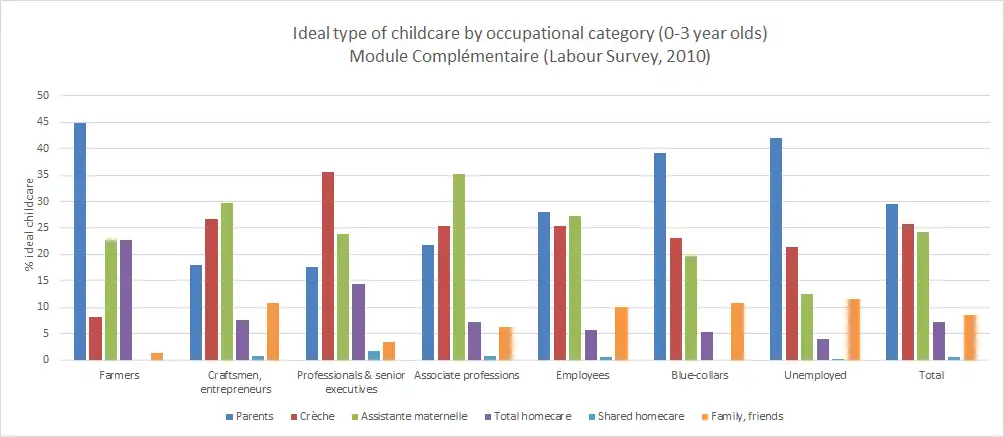
Home>Research>Project>Childcare aspirations and inequalities in France: Preliminary findings
Childcare aspirations and inequalities in France: Preliminary findings
Project team
- Montserrat Botey (Université d'Orléans and LIEPP)
- Clément Carbonnier (Université de Cergy Pontoise and LIEPP)
- Emanuele Ferragina (Sciences Po OSC and LIEPP)
- Federico Filetti (Sciences Po OSC and LIEPP)
- Esme Lillywhite (Research assistant)
Description of the project
This project studies childcare arrangements in France, using data from the European Labour Force Survey. The research is carried out in the context of inequality in access to childcare across Europe. According to OECD statistics from 2016, participation in formal childcare in France is at 31.33% for the lowest tertile of disposable income and 74.05% for the highest tertile, making childcare access more unequal than the OECD average. Thus this project aims to investigate this, and has began by analysing data from 2010.
Databases
This project uses data from the European Labour Force Survey for France, with the addition of ad-hoc modules on work and family life available for 2005, 2010 and 2018. These ad-hoc modules provide supplementary data on specific topics concerning the labour market each year. The sample size for the 2010 module was approximately 25,000.
Preliminary Findings
The project’s preliminary findings have analysed actual and ideal childcare arrangement by urban unit and occupational category.
Geographical trends
It has found that parents living in Paris are most likely to be taking care of children themselves, whereas as the city size decreases, the more likely it is that parents use childminders instead. Furthermore, the use of creches increases with city size, with the exception of the Paris region. These results are shown in Figure 1. As for ideal childcare, people living in rural areas have a preference for childminders whereas people living in urban areas prefer creches.

Figure 1. Actual childcare by urban unit
Occupational trends
The research has also found that professionals, associate professions and employees are the most likely to use creches, and are more likely to use childminders than other occupational categories. It also found that if currently in formal care, the most skilled and the unemployed choose creche as their first choice. See Figure 2 for a glance at ideal type of childcare by occupational category.

Figure 2. Ideal childcare by occupational category
These are the preliminary statistics that have been found for 2010. In general, the statistics show trends of inequality of access and preferences for childcare arrangements according to occupational category and urban unit. Preliminary analysis of the 2005 data has also began, already identifying similar trends.
Next steps
The project is waiting for the 2018 ad-hoc module to continue comparisons between different years. The next steps include studying in further detail what people want from childcare compared to the reality, and analysing the impact of these childcare arrangements on women’s labour market participation in France. Further steps also include analyzing these issues at the European level.

